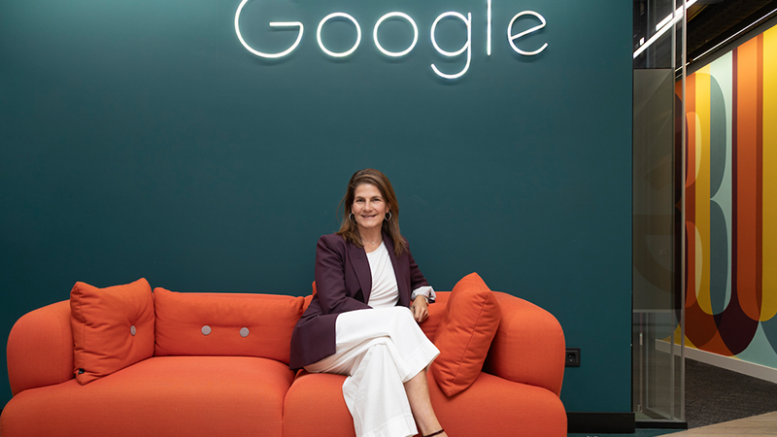According to Fuencisla Clemares—Vice President for Europe, the Middle East, and Africa at Google, board member of Sonae, and advisor to Cosentino—“in Spain, our productivity is stagnant, and we are losing competitiveness as a country. Artificial intelligence is clearly an opportunity that we must embrace, develop, and implement as soon as possible and with the depth required. Our studies suggest that, in the case of Spain, AI could have an annual impact on the GDP of between €100 billion and €120 billion over the next ten years, a peak impact of 8% on GDP.”
Text: Mari Pinardo; Photo: Jesús Umbría
Simon Johnson, 2024 Nobel Prize winner in Economics, says that “with AI, we must avoid the deference to ‘the smartest guys in the room’ that we already suffered in 2008.” What is your opinion?
AI is primarily being developed by large technology companies, but the idea is that it should be accessible to everyone. Models are being built that businesses—including SMEs—can use, and from there, innovation is generated at scale. In this way, an ecosystem is being created that allows anyone to innovate. At Google, we always talk about democratizing access to technology, and that is truly what we are doing. Furthermore, we offer a pay-per-use model, so you can achieve enormous impact without needing to make large investments.
When technology is democratized, it tends to be more difficult to monetize. How are companies going to materialize the value of AI development?
It can be monetized because it genuinely generates value. AI is going to have a significant impact on the productivity of countries and the productivity of businesses. And to the extent that this technology generates value, there will undoubtedly be one way or another to monetize it, because ultimately there is a portion of that value that companies are willing to pay for, and another portion of the value that companies will generate and keep to reinvest in their business.
Altman, the head of ChatGPT, claims that we are in a bubble with AI and that 95% of projects actually fail. Is that your perception?
As with all new technologies, there is an overvaluation in the short term, only to end up later underestimating the true impact it will have. We have no doubt that we are facing one of the technologies with the greatest transformative power. As always, there will be successful projects and unsuccessful projects, but I have no doubt that there is no turning back and that this is a clear and safe bet.
The Metaverse also seemed promising, and no one remembers it today…
This is infinitely different from the Metaverse. With AI, you can already see value and impact. Now, the key is to consolidate and scale it. But the use cases are there. The transformative power that AI holds is truly unique.
Economists say that the technological revolution is everywhere… except in productivity data. Why is that?
I think it is still too early. Changes in productivity begin to appear when you implement things in a more scaled way. We are still in the mode of testing use cases and learning; it has not yet been implemented at scale. Our studies say that, in the case of Spain, AI could have an annual impact on GDP of between €100 billion and €120 billion over the next ten years, a peak impact of 8% on GDP. Those are the productivity gains we believe it can generate, but for that to happen, it must be implanted and developed. We are seeing very specific use cases where we see it working well, but now the key is collaborations and ecosystems that allow us to make it accessible to everyone and implement it effectively.
Productivity in Spain has not grown for more than 10 years. Do you believe AI can solve this problem?
That is the problem Spain has: our productivity is stagnant, and we are losing competitiveness as a country. AI is clearly an opportunity that we must embrace, develop, and implement as soon as possible and with the depth required.





